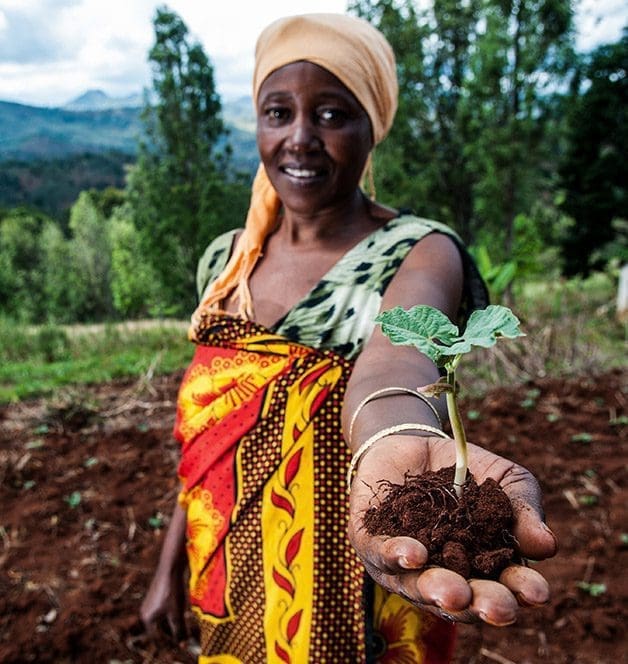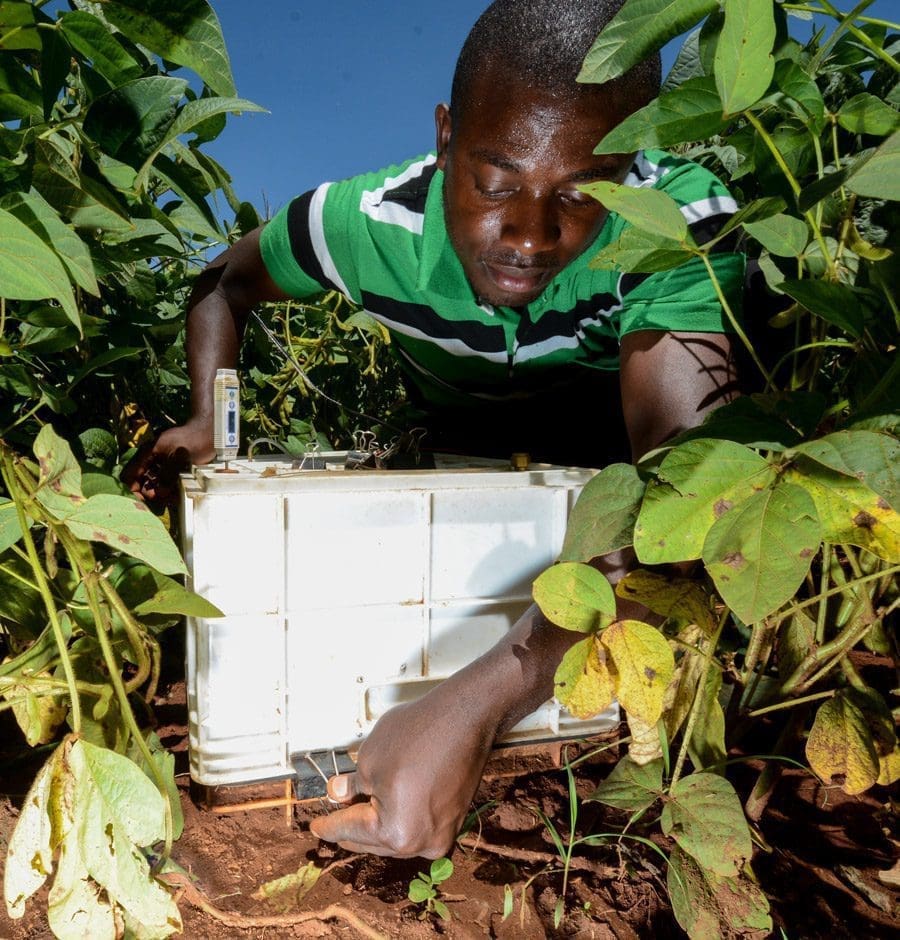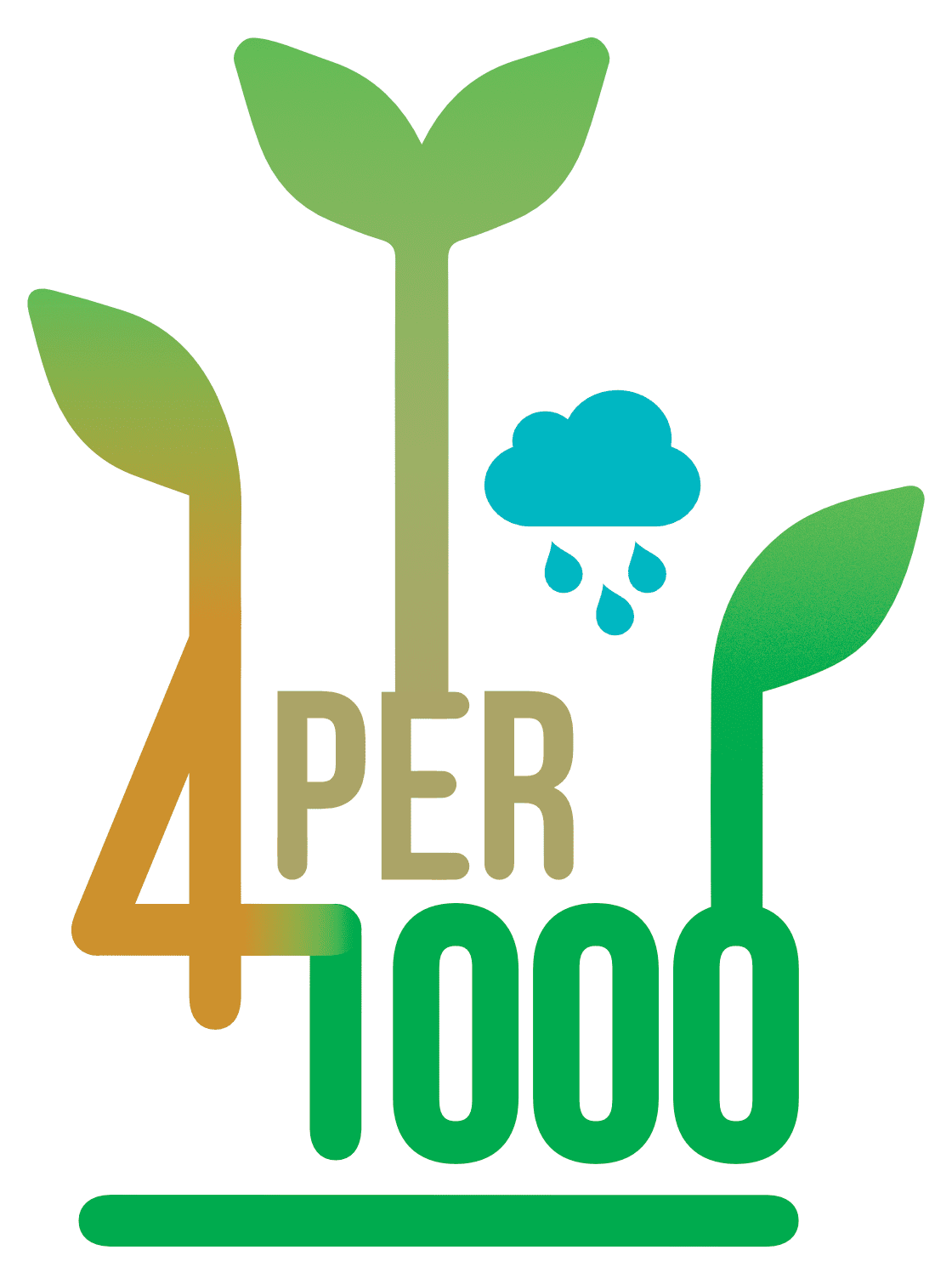The International “4 per 1000” Initiative is a multi-stakeholder initiative built around two main strands of action:
1. A programme of multi-stakeholder, state and non-state actions for improved soil carbon management to combat poverty and food insecurity, while contributing to climate change adaptation and mitigation
2. An International programme of research and scientific cooperation.
The multi-actor action programme – state and non-state
For better soil carbon management to fight poverty and food insecurity, while contributing to climate change adaptation and mitigation, through:
- P the implementation at local level of agricultural and environmental management practices favourable to the restoration of soils, the increase of their organic carbon stock, the protection of carbon-rich soils and biodiversity
- Psetting up training and knowledge dissemination programmes to promote these practices
- P financing projects to restore, improve and/or preserve soil carbon stocks
- Pthe development and implementation of appropriate public policies and tools
- Pthe development of supply chains for soil-friendly agricultural products...


The international research and scientific cooperation programme
The programme “Carbon in Soil: A Challenge for Food Security”, addressing four complementary scientific questions:
- Pstudy of the mechanisms and estimation of the carbon storage potential in soils according to regions and systems
- Pevaluating the performance of virtuous agricultural practices and their consequences on CO2 sequestration and other production and regulation services
- Psupporting innovations and stimulating them through appropriate policies
- Pmonitoring and estimating carbon stock variations in soils, in particular for farmers.
The “4 per 1000” Initiative promotes the implementation of the actions of these two components
- Pby promoting the value of sustainable soil management for food security and climate at the international level
- Pby proposing a project evaluation framework based on the principles and objectives of the Initiative
- Pby providing and running a collaborative platform that facilitates exchanges and the capitalisation of experience between actors on the implementation of concrete actions
- Pby recognising the exemplary nature of certain projects with regard to the objectives of the Initiative
- Pby creating a digital resource centre on the issue of soil carbon.
Appropriate funding and development policies
If the joint action of all stakeholders is to be translated into results, and if the agricultural sector is to contribute to food security, adaptation to climate change and the mitigation of greenhouse gas emissions, new financing and appropriate development policies must be put in place. The International “4 per 1000” Initiative reinforces the existing synergies and coherences between the three major Rio Conventions, the Committee on World Food Security, the Global Soil Partnership and the Sustainable Development Goals adopted in September 2015.
The principles of the International “4 per 1000” Initiative are fully consistent with the Global Soil Charter (1988/2015).
It is also consistent with (and not in competition with) other initiatives dealing with the theme of agriculture and climate.
The International “4 per 1000” Initiative fully meets the objectives of the Paris Agreement (December 2015):
- Pby participating in the challenges of adaptation and contributing to preserving food security, in particular through the improvement of soil fertility, agricultural yields and the nutritional quality of agricultural products
- Pby participating in the objective of limiting global warming to below 2°C, and if possible to 1.5°C, and the long-term objective of neutrality of anthropogenic emissions (all gases combined) in the second half of the century
- Pby developing practices, technologies and policies, based on the latest scientific knowledge, to help countries meet their nationally determined contribution (NDCs) targets
- Pby providing scientific assurance to funders on the impact of projects submitted for funding, but also to civil society on environmental, social and economic impacts.
The “4 per 1000” Initiative is coherent and contributes to the achievement of many Sustainable Development Goals (September 2015):
- Pdirectly, to SDGs 2 (fight against hunger), 13 (fight against climate change) and 15 (life on earth)
- Pindirectly, to SDGs 6 (access to safe water and sanitation), 12 (responsible consumption and production) and 17 (partnerships for achieving the goals)
- Pand also to SDGs 1 (poverty reduction), 3 (access to health), 7 (use of renewable energy), 8 (access to decent work) and 14 (aquatic life).
The “4 per 1000” Initiative meets all the criteria of the Global Climate Action Agenda:
- Ptransformational
- Pproviding concrete deliverables
- Preplicable
- Pinnovative
- Psupportive of the implementation of the NDCs
- Pinclusive.
It is a partner in other International initiatives and partnerships: a partner in the Global Soil Partnership (FAO), a partner in the United Nations Decade for Ecosystem Restoration 2021-2030, an “observer” in the United Nations Convention to Combat Desertification, a partner in Planet A and the Triple A Initiative…
The international “4 per 1000” Initiative is the 2017 winner of the Vision Future Policy Award.
Since 2020, the Strategic Plan of the International “4 per 1000” Initiative provides an overall framework for all its goals and actions.
